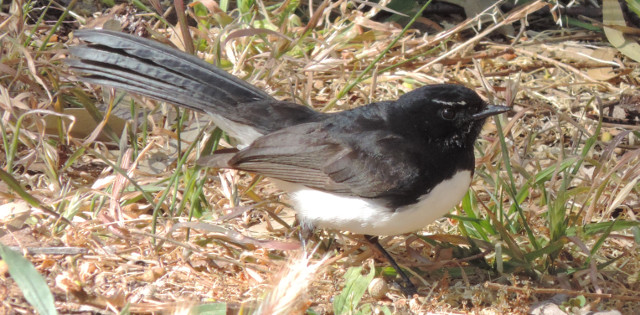In this short video taken at iwCLL Collogne Germany, Andrew Schorr interviews Dr Hillmen:
"As a full slate of new treatments for CLL show promise, one approach--with a drug called idelalisib--is to inhibit the PI3k pathway that is active in CLL. Dr. Peter Hillmen explains how this drug works and where it could fit in as part of non-chemo CLL therapy."
patientpower.info/video/whe...
Interesting to hear that in contrast to the Patient Power introduction, in the UK, Dr Hillmen sees Idelalisib as likely to have a place with a chemotherapy backbone of Chlorambucil + Ofatumumab or Bendamustine + Ofatumumab.
Neil
The willie wagtail is a common Australian native fantail that I've found very hard to capture due to their unceasing activity. Named for the way they wag their fantail around, these birds were disliked by Indigenous people in some areas, as they were thought to loiter at the edge of camps, listening to conversations then telling the secrets elsewhere.
